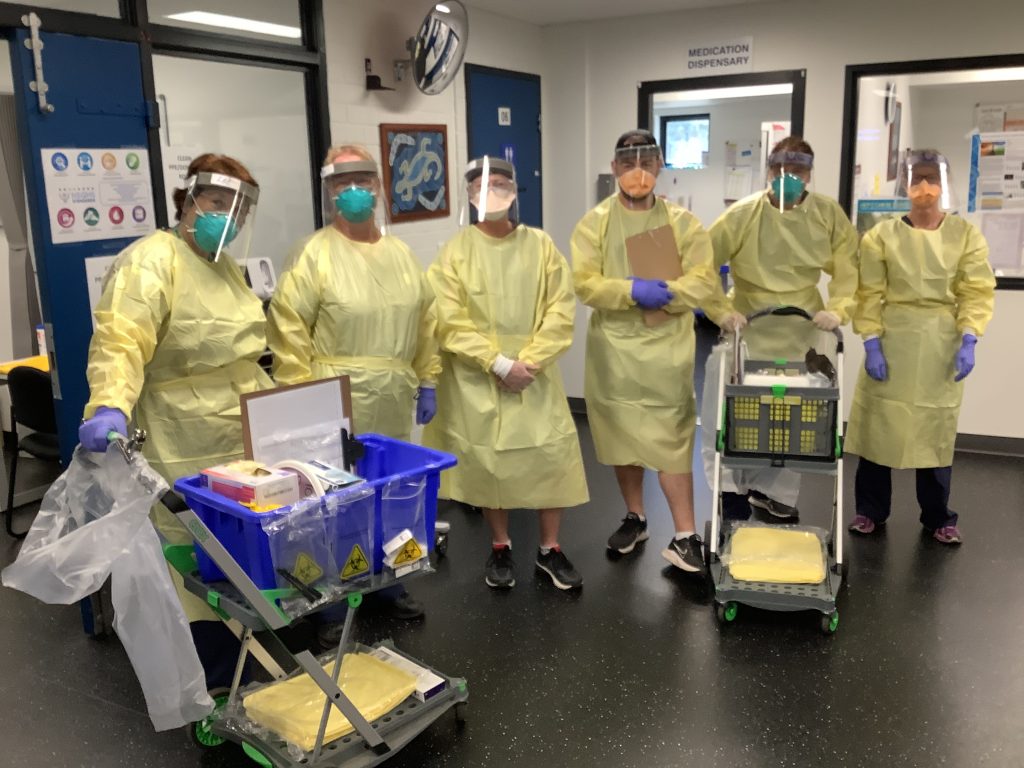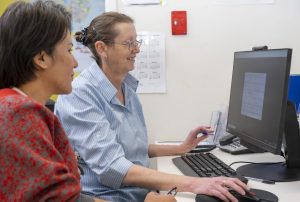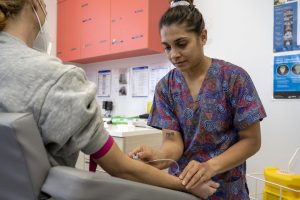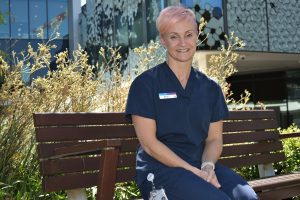When the first positive test result of the highly transmissible Omicron variant was detected at SA’s Mobilong prison on New Year’s Eve, the Central Adelaide-managed onsite health service swung into action to minimise the potential spread and ensure the health and safety of prisoners, staff and visitors.
Internationally, COVID-19 has had a devastating impact on prisons, with many of its vulnerable populations becoming seriously ill or dying, so the 16-person SA Prison Health Service team based at Murray Bridge knew the priority was to quickly manage the outbreak.
The immediate challenge was the testing, isolating and identification of any close contacts of the 470-plus prisoners and 200 staff, says Lucy Howard, Nurse Unit Manager at Mobilong Prison.
“Because we are an open campus, with prisoners living in self-contained cottages and with no boundaries, at any one time they are able to mingle with each other,” Lucy says.
“The minute we got the first positive the Department for Correctional Services locked down the prison to minimise any movement around the place.”
Within five days the entire population of staff and prisoners had been tested, thanks to a tremendous combined effort from the nursing team and correctional officers.
About 300 prisoners would eventually return a positive result, equating to almost 65 per cent of the prison’s population.
“It was challenging because we needed to complete the testing but also be on call for any medical emergency incidents and continue to provide our usual tasks including primary healthcare and administering medications,” Lucy recalls.
“On top of that our staff were conducting the testing in full PPE during 41°C heat.”
Incredibly, not one prisoner required hospitalisation while one other was treated with a monoclonal antibody infusion, which helps those who meet a referral criteria, including the unvaccinated, partially vaccinated or immunocompromised with complex health needs, to mitigate the severity of the virus.
“Any patient we were concerned about was monitored overnight by correctional officers with the assistance of the COVID Response Care Team and nursing staff at Yatala Labour Prison,” she says.
The prison’s high vaccination rate was crucial in the successful response to the outbreak.
“We had about 85 to 86 per cent of prisoners fully vaccinated, which held us in very good stead,” she says.
SA Prison Health Service director Andrew Wiley congratulated the prison health teams working across all sites for keeping its vulnerable patients safe and ensuring a low hospitalisation rate.
“The prison health teams at all the sites have done an amazing job in keeping our patients safe and well,” he says.
“With such massive numbers that’s a significant achievement and I extend my thanks to them for their exceptional work.”
“We’ve had a really strong focus on vaccinations as most people entering custody are not vaccinated, we’ve put a lot of work in to get those people vaccinated.”
“I think this has been really positive in terms of ensuring that our patients didn’t require hospitalisation.”
Andrew also credits “excellent collaboration” between various health teams and the Department for Correctional Services staff for helping to effectively manage the outbreak.
“SA Health, the Communicable Diseases Control Branch, Public Health, the COVID Response Care Team and SA Pathology amongst others have really lent in and helped us.”



